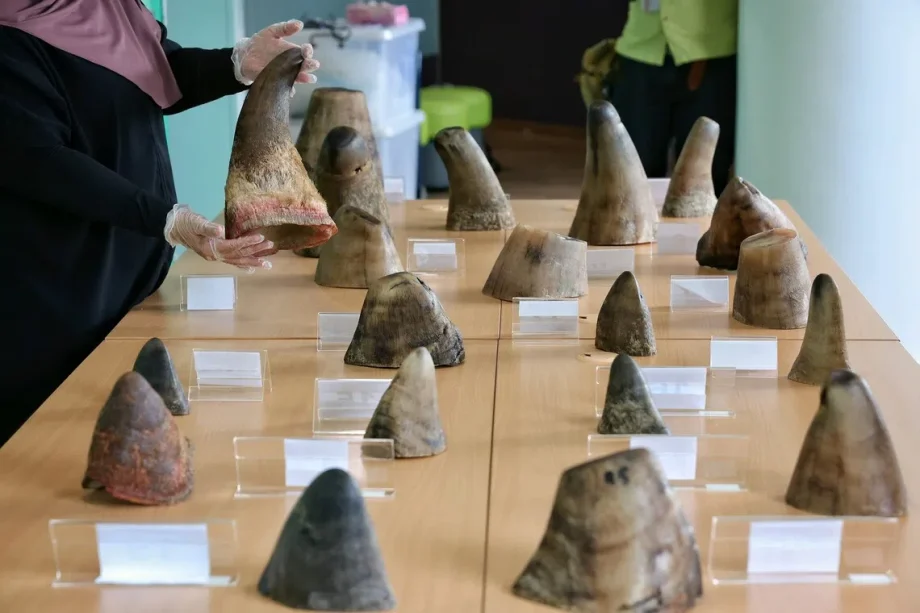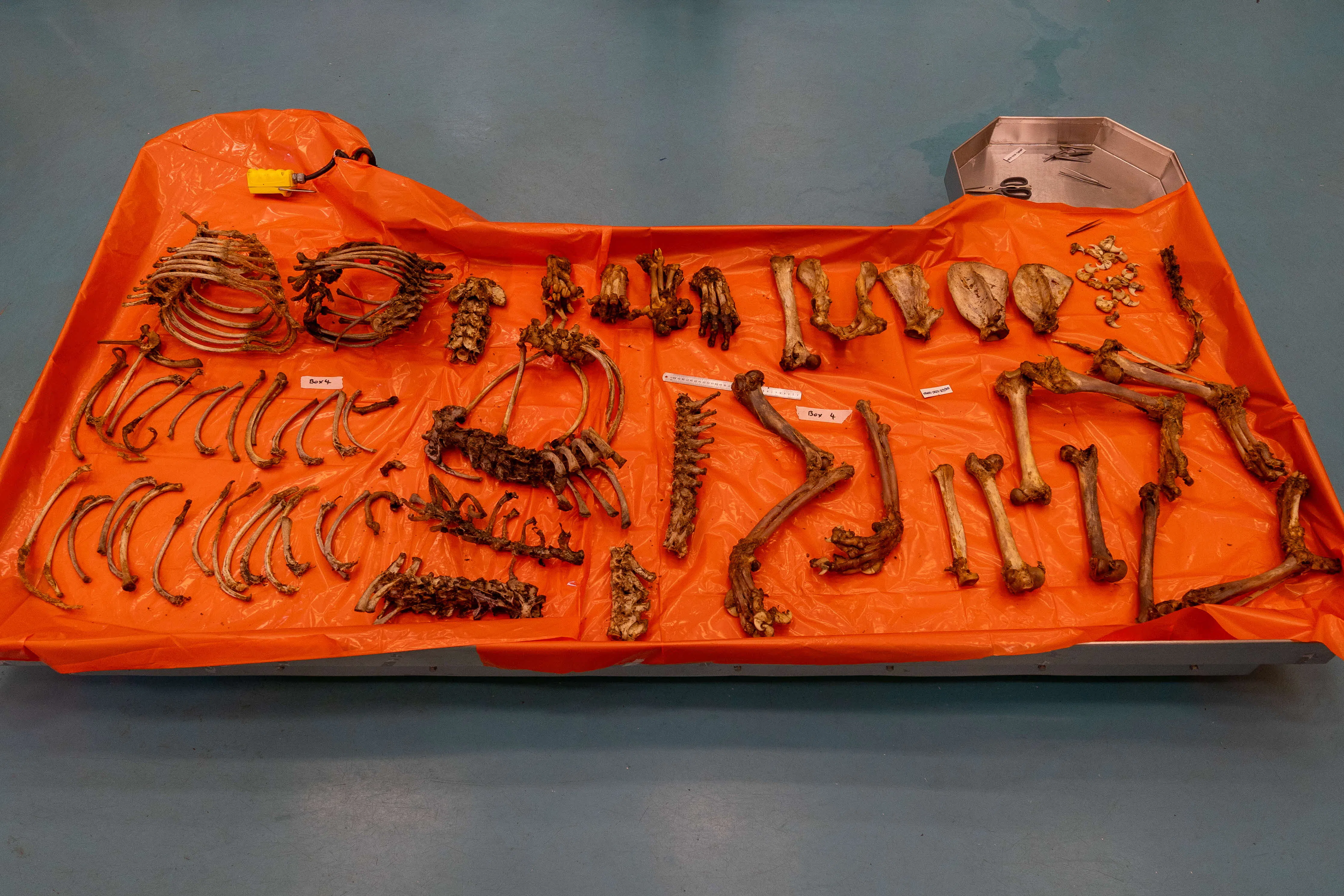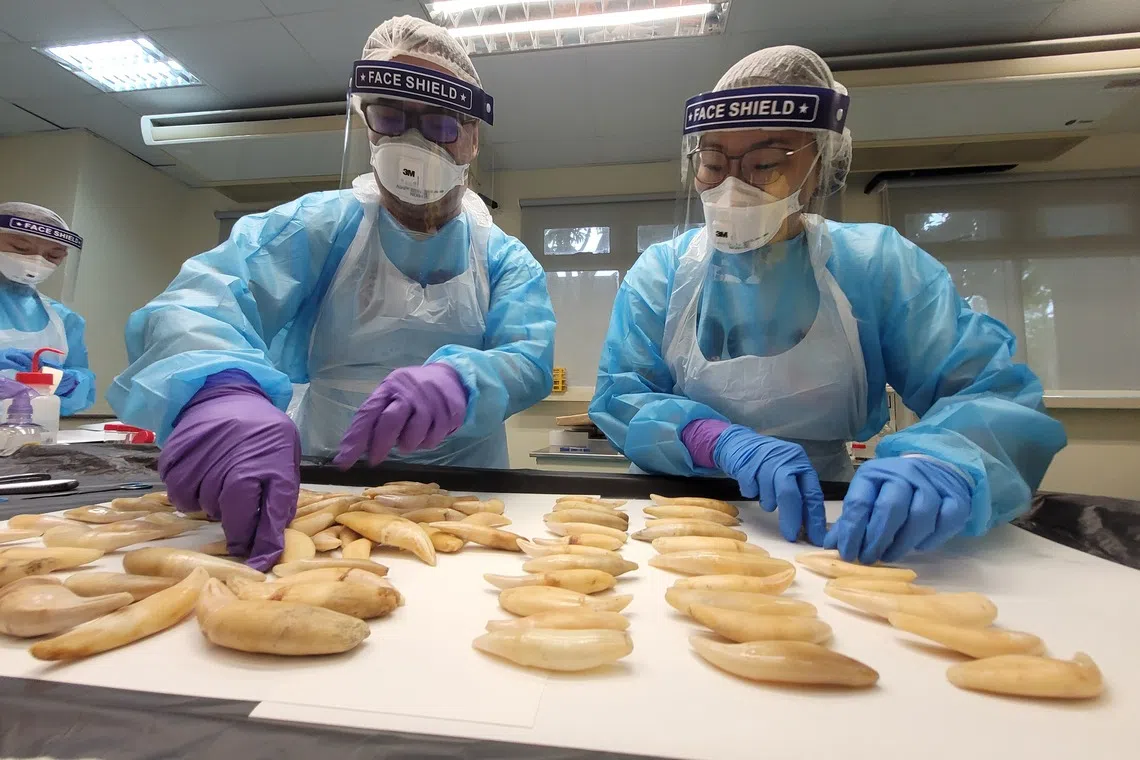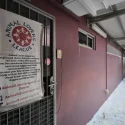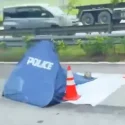SINGAPORE – An attempt to smuggle 35.7kg of rhinoceros horns from South Africa into Laos through Singapore was uncovered at Changi Airport on Nov 8, in the largest haul of its kind in the Republic to date.
Other than the 20 rhino horns estimated to be worth around $1.13 million, the authorities also discovered within four cargo shipments around 150kg of other animal parts including bones, teeth and claws.
The horns came from the white rhinoceros (Ceratotherium simum), according to the National Parks Board’s (NParks) Centre for Wildlife Forensics. The other animal parts are still being identified, but are likely to have come from carnivores.
The latest seizure comes after a law regulating the wildlife trade in the Republic
was amended in 2022 to impose harsher penalties on offenders.
The haul was found in cargo shipments labelled as containing furniture fittings. The smuggling attempt was foiled by air cargo handler Sats and NParks, the authorities said in a media briefing on the seizure on Nov 18.
Sats Cargo Services operations assistant Vengadeswaran Letchumanan had noticed irregularities with the shipment that raised his suspicions during routine screening and acceptance checks.
The 30-year-old, who has been in the role for three years, had found the shipment to be slightly damaged. He also detected a strong odour, which he described as being like decomposing flesh, coming from the package when inspecting the cargo.
NParks and Sats said Mr Vengadeswaran had, upon closer visual examination, found the shipment to be inconsistent with the declared contents, and thought that the cargo should undergo further screening.
He escalated the case to his managers, and one of the pieces of cargo was opened for inspection under the supervision of the duty manager, a Sats security officer and the cargo agent. They found what appeared to be animal parts.
The remaining three pieces of cargo were then subjected to X-ray screening and found to contain similar contents. The authorities said these checks were in accordance with standing procedures for inspecting suspicious cargo.
“When they opened the box, (it was) very smelly. (I couldn’t) stand near the box. This is the first time I saw something like this,” Mr Vengadeswaran told the media.
The authorities said the horns will be disposed of according to international guidelines to prevent them from re-entering the market. This will disrupt the global supply chain of illegally traded rhinoceros horns.
That means the horns will be incinerated – a standard practice used globally.
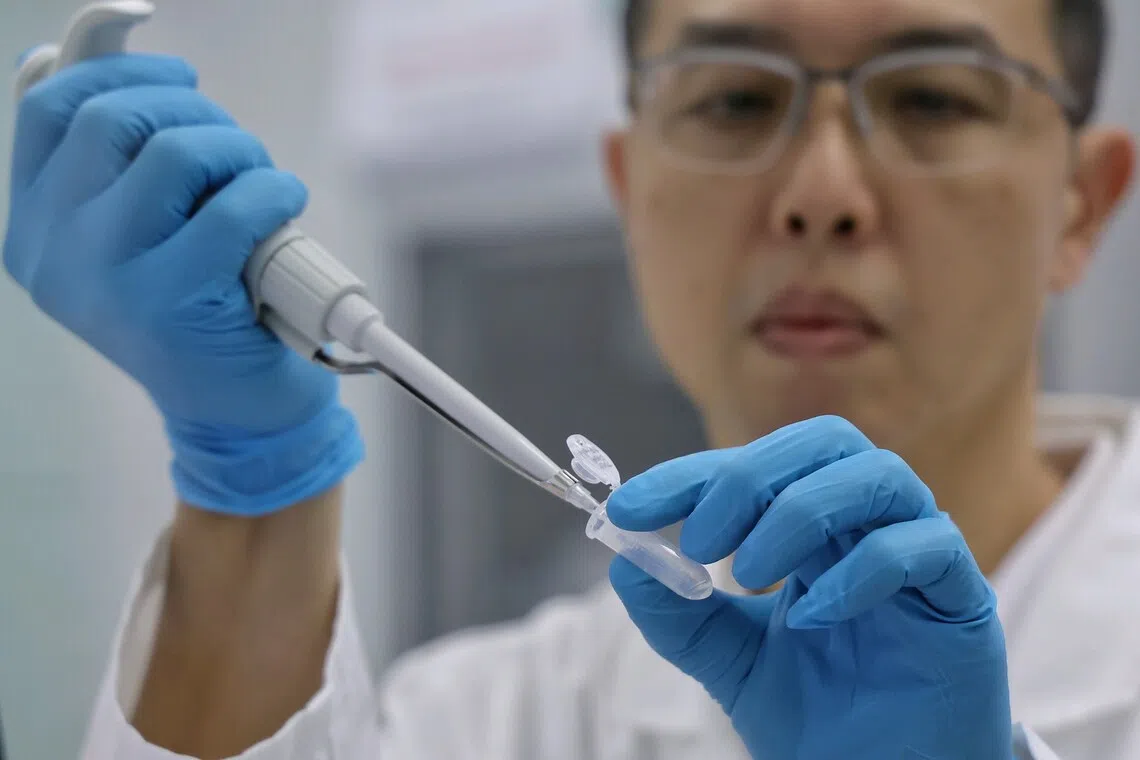
A scientist extracting DNA samples from animal specimens at the Centre for Wildlife Forensics on Nov 18.
ST PHOTO: KEVIN LIM

